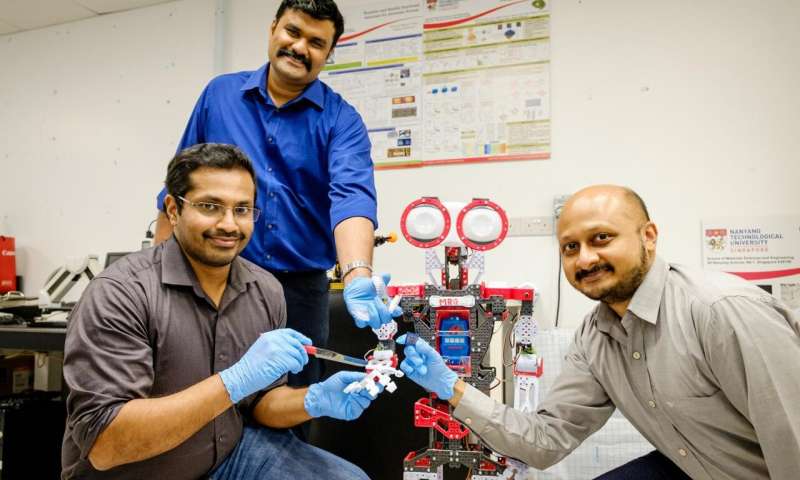HOME
Scientists develop 'mini-brains' to help robots recognize pain and to self-repair

(Top left to right) Members of the NTU research team include Associate Professor Nripan Mathews from the School of Materials Science and Engineering, Research Fellow Rohit Abraham John and Associate Professor Arindam Basu from the School of Electrical & Electronic Engineering. Credit: NTU Singapore
Using a brain-inspired approach, scientists from Nanyang Technological University, Singapore (NTU Singapore) have developed a way for robots to have the artificial intelligence (AI) to recognize pain and to self-repair when damaged.
The system has AI-enabled sensor nodes to process and respond to 'pain' arising from pressure exerted by a physical force. The system also allows the robot to detect and repair its own damage when minorly 'injured', without the need for human intervention.
Currently, robots use a network of sensors to generate information about their immediate environment. For example, a disaster rescue robot uses camera and microphone sensors to locate a survivor under debris and then pulls the person out with guidance from touch sensors on their arms. A factory robot working on an assembly line uses vision to guide its arm to the right location and touch sensors to determine if the object is slipping when picked up.
News Source